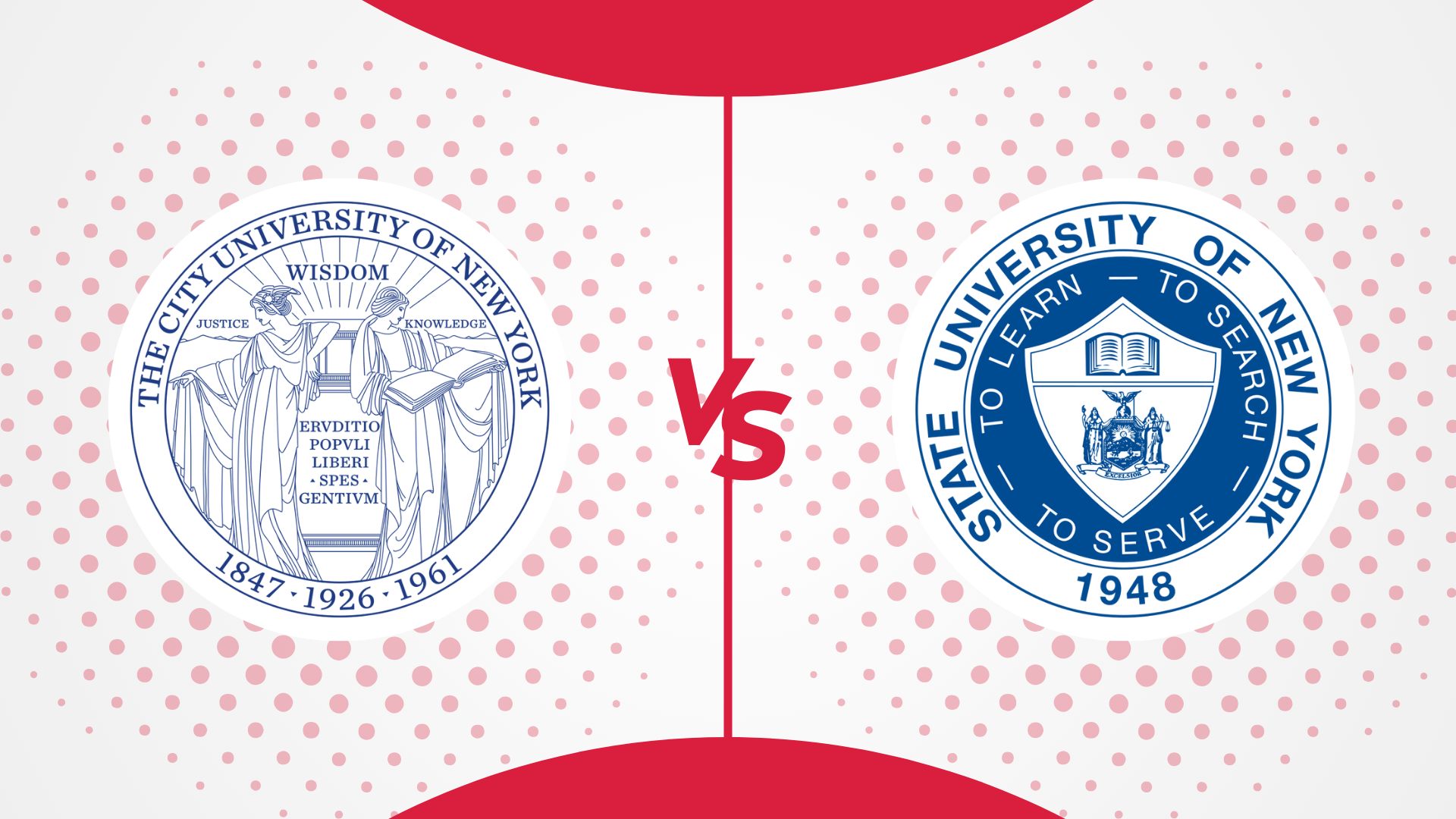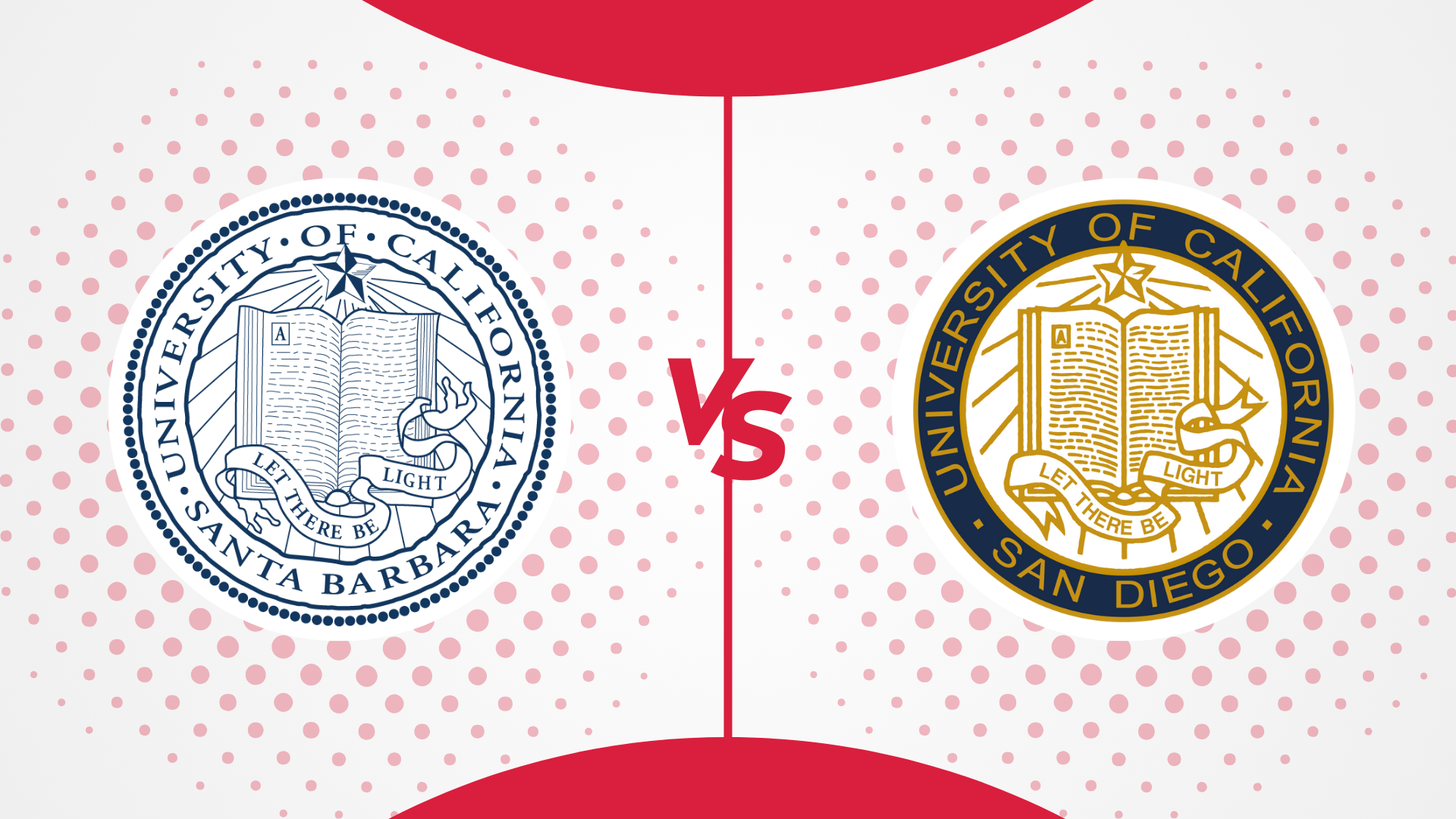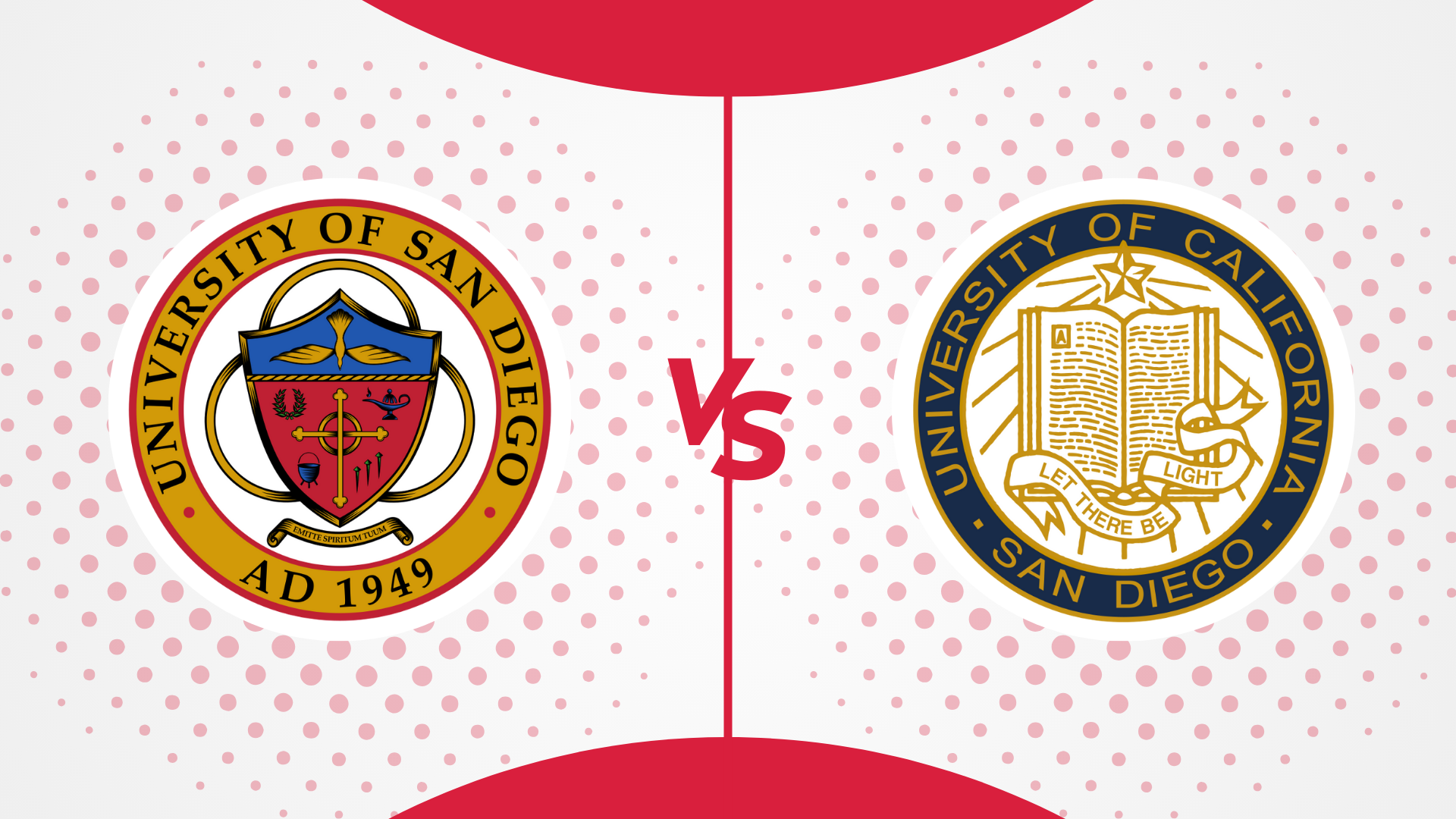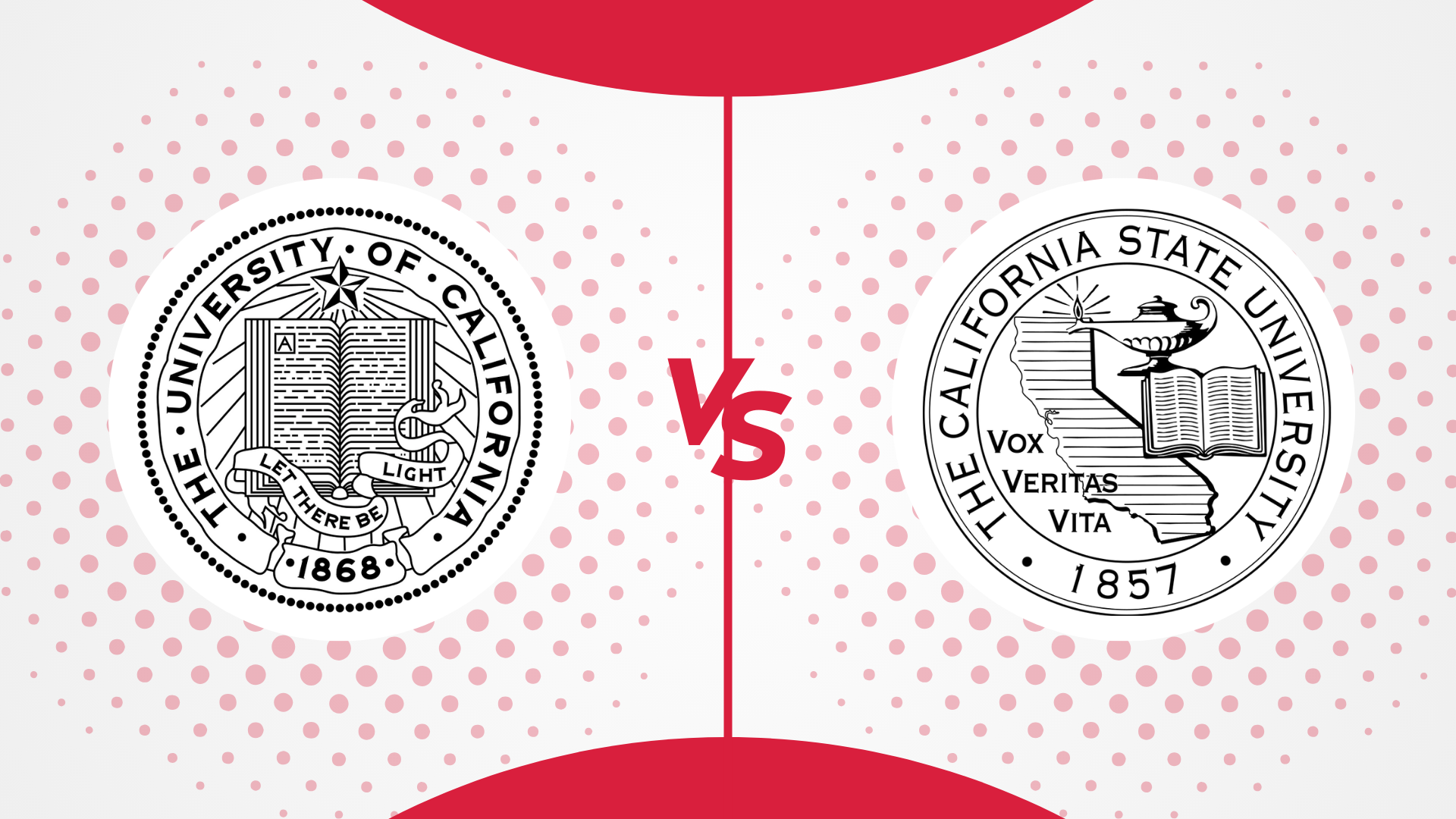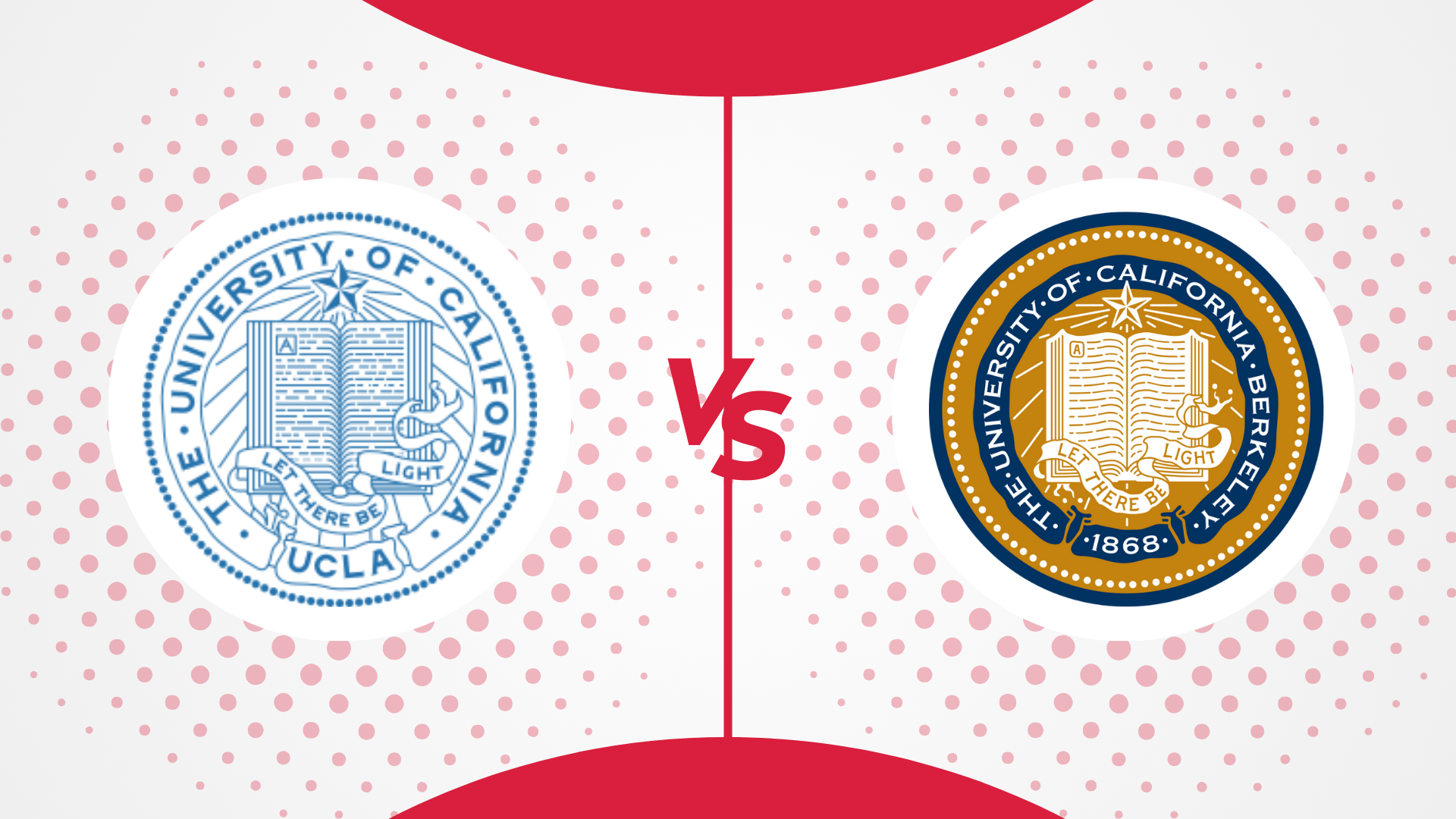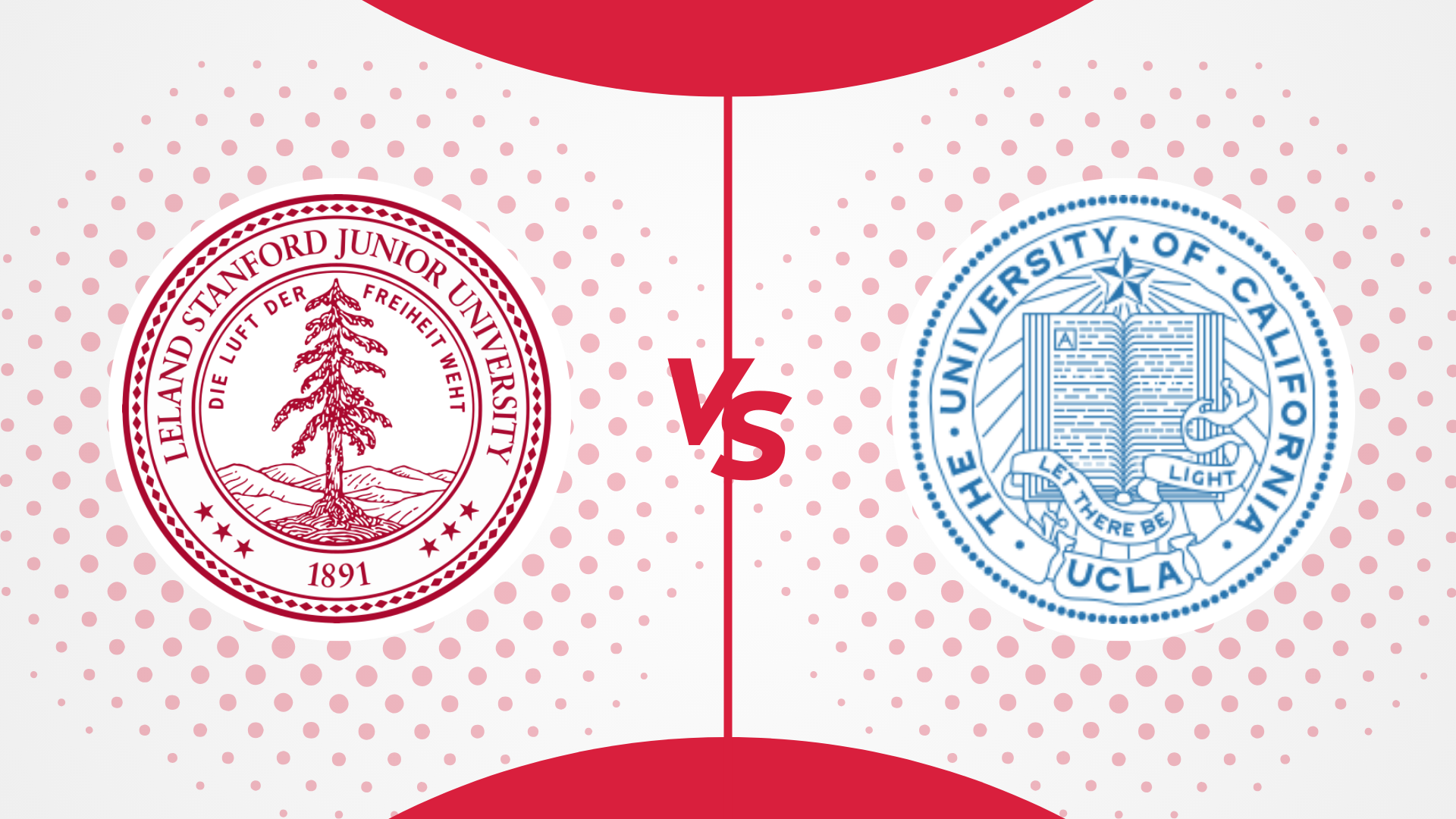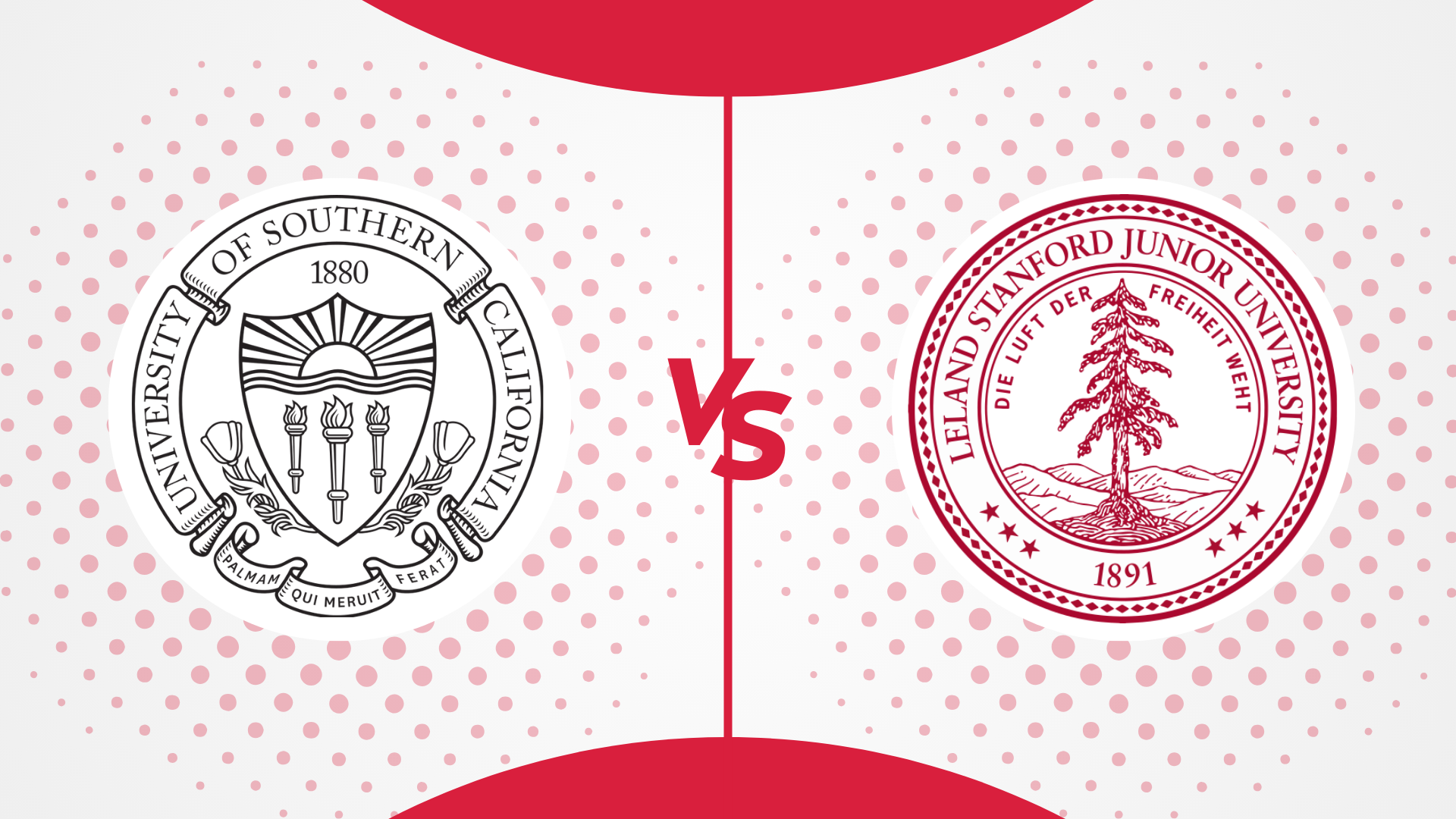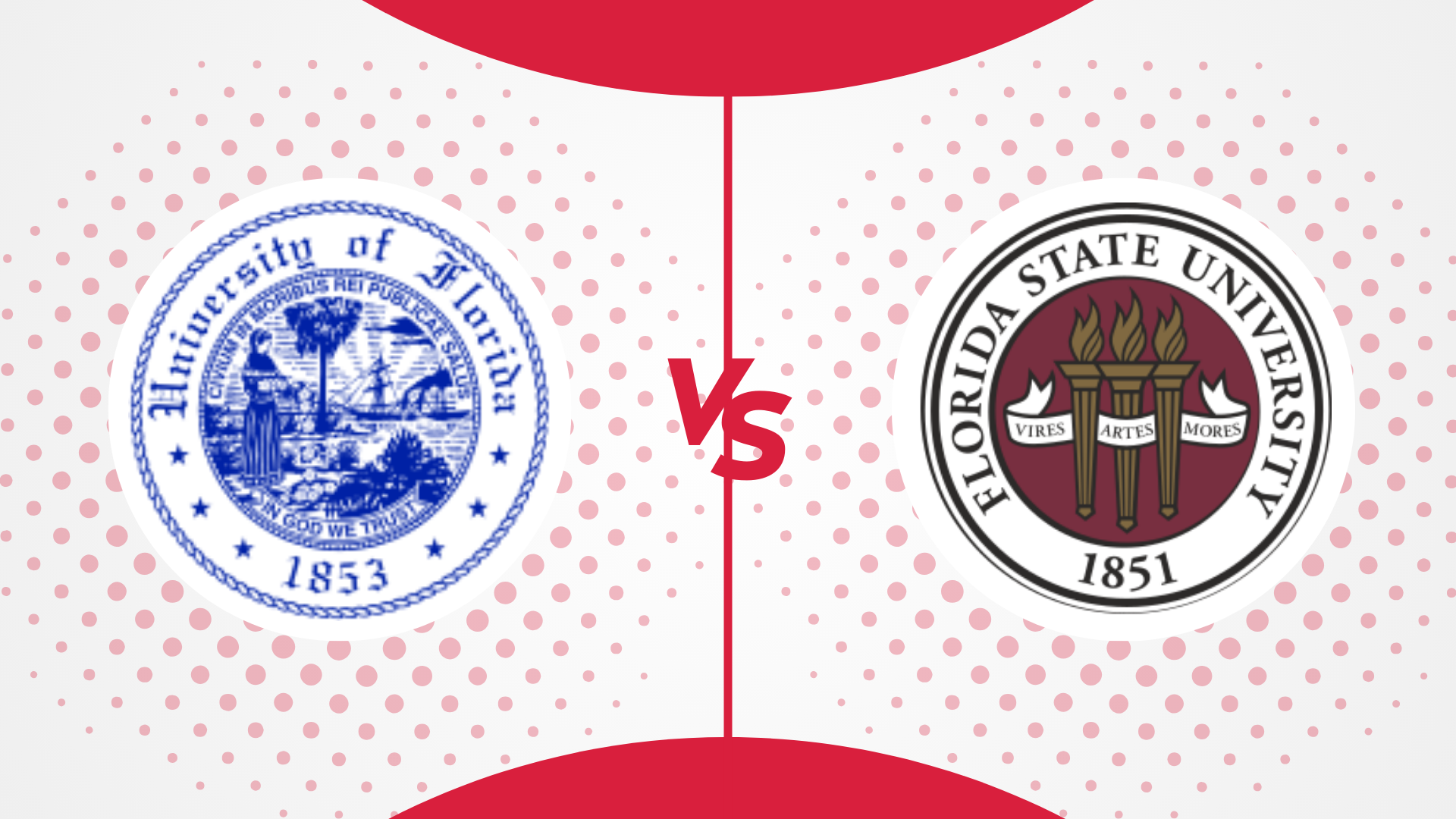Understanding the differences between universities is important. Choices like the ‘University of Edinburgh vs. King’s College London’ are common. Deciding between the two can be difficult because both universities are well-known for their excellence in various areas of study.
While selecting colleges and universities, students should consider more than just one dimension of academics or ranking. The choice is dependent on career plans, suitability of curriculum and teacher styles, location, accessibility, and a plethora of other factors.
We look at an in-depth comparison of these two prestigious institutions in various areas, from student satisfaction to modules, choice of majors, university ranking, admission criteria and more, assisting prospective students in making an informed decision about their academic future.
Overview of Edinburgh University and King's College London

Upon Comparison, there are many differences between the University of Edinburgh and King’s College London. The University of Edinburgh, founded in 1582, is well-known for its emphasis on research and diverse academic offerings, particularly in the arts, humanities, and sciences. King’s College London, founded in 1829, is one of the UK’s oldest and most prestigious universities, with a strong reputation in law, health sciences, and social sciences.
Edinburgh’s location combines historical charm with modernity, whereas King’s is located in the heart of London, providing unparalleled cultural and professional opportunities. QS World University Rankings ranks Edinburgh among the top 20 universities in Europe and the world. King’s College London is also one of the world’s top public universities. QS ranks King’s College London #40 out of 1401 globally and #7 out of 89 in the UK for 2025.
Besides the differences in lifestyle and career prospects that their locations provide, one key difference between these two best universities is the duration of undergraduate programs. A BA or BSc degree can be completed in 3 years in England, Wales, and Northern Ireland (and therefore in KCL), while it takes 4 years to complete in the University of Edinburgh.
Brief History and Background
University of Edinburgh
The University of Edinburgh, one of the oldest universities in the English-speaking world, is centrally located in the Scottish capital. It has a vibrant, diverse community that attracts students worldwide. It is well-known for its contributions to medicine, literature, and philosophy, and it consistently ranks among the top 20 in the world, demonstrating its commitment to research and academic excellence.
Officially opened in 1583, it is one of Scotland’s four ancient universities. Following the Scottish Enlightenment of the 18th century, it rose to prominence in critical thinking and academia. Since its inception, it has produced Nobel laureates, Olympic champions, space explorers, and Prime Ministers.
With three main colleges that host over 20 different schools, the University of Edinburgh ranks 27th in the world and 15th in the country, according to QS World University Rankings and Guardian Table 2025, respectively.
King’s College London
Like Imperial College London, King’s College London is a prestigious university in one of the world’s most vibrant cities. As a member of the Russell Group, it emphasises research and innovation in various disciplines, including law, health, and education. Its diverse student body and faculty strengthen its global reputation, making it a popular choice for domestic and international students.
When the University of London was founded in 1836, King’s became one of the two founding colleges. It has grown and developed, including mergers with Chelsea and Queen Elizabeth Colleges in 1985, the Institute of Psychiatry in 1997, and the United Medical and Dental Schools of Guy’s and St Thomas’ Hospitals in 1998. Since 1994, King’s has enjoyed financial and academic autonomy while remaining affiliated with the University of London. It has been awarding degrees on its own since 2008.
With five campuses spread across London, KCL’s academics are divided into nine faculties. The university offers over 190 bachelor’s degrees and over 350 graduate degrees to its students. According to the Guardian League Table and QS World University Ranking 2025, KCL ranks 28th in the country and 40th in the world.
Key Statistics and Rankings
The table below highlights the key stats ranks for The University of Edinburgh vs. King’s College London.
| Category | University of Edinburgh | King’s College London |
| Campus | Central Edinburgh | Central London |
| Nickname | Edinburgh | King’s (KCL) |
| U.S. News Best Global Universities 2024-2025 | 38 | 36 |
| QS World University Rank 2025 | 27 | 40 |
| Guardian League Table 2025 | 15 | 28 |
| Undergrad Student Body | 29,765 | 26,791 |
| Graduate Student Body | 19,975 | 18,256 |
| % of International Enrollment | Around 49% | 53.3% |
| Average Acceptance Rate | 12 – 40%, depending on the course | 13% |
| Student Staff Ratio (Source: The Complete University Guide League Table, 2025) | 12.3 | 14.0 |
| Number of Undergraduate Programs | 300+ | 190+ |
| Number of Graduate Programs | 500+ | 350+ |
| Number of Athletic Teams | 200+ | 60+ |
| Number of Clubs and Student Organisations | 350+ | 400+ |
| Colours | Corporate Red and Blue | Blue and King’s Red |
University of Edinburgh vs KCL: Academic Comparison
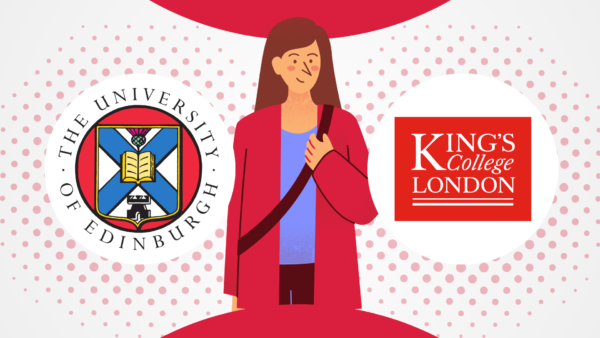
As a student, your primary focus while comparing Edinburgh vs King’s College London should be academics. Academic reputation plays a crucial role in university choice. While the University of Edinburgh is ranked among the top 15 universities in the UK and is known for its rich history, KCL is equally prestigious despite ranking lower. Edinburgh University and King’s College London offer diverse programs that attract international students.
In this section, we will examine both Edinburgh and Kings and analyse their undergraduate and graduate courses, choices and flexibility, ranking, degrees and class sizes, academic calendars, research facilities, and budgets, all of which can become essential factors in deciding between the two universities.
Undergraduate Programs
Program Options and Focus Areas:
Edinburgh and KCL are well-known as outstanding teaching and research institutions. Both are state-funded public universities with various departments offering various world-leading programmes. Edinburgh has over 300 undergraduate programmes, whereas King’s has about 200 programs to choose from. They are both comprehensive universities that offer numerous courses across disciplines.
That said, the University of Edinburgh is world renowned for its programs in anatomy, medicine, veterinary medicine, arts and humanities, artificial intelligence, and engineering, while King’s College has a stellar reputation for dentistry, nursing, life sciences, political science, law, and psychology among other disciplines.
Furthermore, students at Edinburgh and King’s College make their major selections when applying to university. This is typical of most UK universities, unlike the United States, where majors are usually declared in the sophomore year. Some universities allow you to change majors based on seat availability, but the process is similar to reapplying for a new programme.
Course Duration:
One of the key differences when it comes to King’s College London vs the University of Edinburgh is the time it takes to complete an undergraduate degree. In the United Kingdom, a typical BA/ BSc degree can be completed in three years in England, Wales and Northern Ireland. However, universities in Scotland, including the University of Edinburgh, function like US universities, wherein it takes 4 years to complete a bachelor’s degree.
Core Curriculum:
Edinburgh and King’s College London, unlike universities in the United States, do not include a General Education or Core Curriculum component. The general assumption is that students/applicants have a basic, functional understanding of the foundations before enrolling at the university. If unprepared, students in the United Kingdom typically apply for a foundation year before pursuing a three-year bachelor’s degree.
Standardised Test Scores and Other Admission Criteria: One of the significant advantages for an undergraduate student applying to study in UK universities, be it The University of Edinburgh, King’s College London or any other school, is the University and Colleges Admission Services, also known as UCAS. As a prospective applicant, you can log in to the UCAS website and apply to five different UK universities with only one application.
Both universities’ admission criteria for most courses are GCSE (UK High School) scores, A levels, or IB Scores; however, they might have specific requirements for certain courses. Both these UK universities do not compulsorily require standardised tests. However, SAT or ACT scores are recognised and can be used to meet entry requirements.
International students must also demonstrate English language proficiency by taking the IELTS, TOEFL, or other accepted tests. The minimum required score varies depending on the program at each university.
Your essay, statement of purpose, and letters of recommendation are essential components of your application and your academic qualifications.
Class Size:
Class sizes vary significantly across departments at both universities. Edinburgh has a student-to-faculty score of about 12 students per staff, while KCL is marginally higher at about 14 (Source: The Complete University Guide 2025). Lectures at the University of Edinburgh are typically held in larger groups with smaller seminar groups. The structure at King’s College London is also somewhat similar, with some programs offering more intimate settings.
Majors:
The students applying to study at Edinburgh University or King’s College London have various options to choose from. The table below lists some of the top majors in both universities.
| University of Edinburgh | King’s College London |
|
|
Graduate Programs
Graduate Program Options: Before diving into the options and analysis for Master’s programs available at Edinburgh University and KCL, students should make note of two critical points.
- First, most master’s degrees in England, Scotland, Wales, and Northern Ireland are for one year, unlike the two-year programs in most other countries. A typical postgraduate degree at the University of Edinburgh takes only a year to complete, even though the undergrad degrees take an additional year.
- Second, while researching your degree, please consider whether it is a taught master’s or a research master’s program. As the name suggests, taught master’s programs (MA/ MSc) are primarily composed of coursework, lectures, and exams, with some research work. Conversely, MRes comprises minimal coursework with a heavy focus on a single research project. To put it better, MRes can be considered a mini PhD program.
The University of Edinburgh and King’s College London offer about 500+ and 350 + master’s programs respectively across various disciplines, including taught and research degrees. KCL is known for its Master’s programs in law, international relations, arts and humanities, social sciences, health, law, business, and natural sciences. At the same time, the University of Edinburgh provides humanities, social sciences, engineering, health sciences, and more programs. Both institutions hold strong global standings, making them attractive options for international students.
College Admissions: Both universities, KCL and Edinburgh, are competitive regarding admissions. The acceptance rate at the Master’s level varies across departments. The general criteria for the Master’s program for both universities have been detailed out below:
- An upper second-class honours degree from a recognised university,
- Personal essays, letters of recommendation, audition tapes and portfolios (if required)
- Standardised English language tests are mandatory for international students.
- Standardized graduate tests (GMAT/ GRE scores) are required for some programs, especially when applying for business and management-related programs in both universities. The University of Edinburgh also recommends that non-UK students submit their GRE/ GMAT scores even if it is not compulsory.
- Some postgraduate programs or professional programs might also require you to have some work experience.
Top Graduate Programs:
| University of Edinburgh | King’s College London |
|
|
Overall and Subject Rankings
Two tables compare Edinburgh vs KCL based on overall rankings and individual subject metrics.
| Ranking Source | The University of Edinburgh | King’s College London |
| U.S. News Global Universities 2024-25 | 38 | 36 |
| Times Higher Education WUR | 18 | 34 |
| QS World University Ranking 2025 | 27 | 40 |
| Guardian UK National Ranking 2025 | 15 | 28 |
| Global Subject Ranking (Source: QS Subject Rank 2024) | |
| Edinburgh | KCL |
|
|
While rankings provide valuable insight, they shouldn’t be the sole deciding factor in choosing a university. Edinburgh and KCL institutions have unique strengths that cater to different academic and personal needs.
Constituent Schools
The University of Edinburgh comprises three colleges, which collectively host 21 schools.
- College of Arts, Humanities and Social Sciences
- Business School
- School of Divinity
- School of Economics
- Edinburgh College of Art
- Moray House School of Education and Sport
- School of Health in Social Science
- School of History, Classics and Archaeology
- School of Law
- School of Literature, Languages and Cultures
- School of Philosophy, Psychology and Language Sciences
- School of Social and Political Science
- Centre for Open Learning
- College of Science and Engineering
- School of Biological Sciences
- School of Chemistry
- School of Engineering
- School of GeoSciences
- School of Informatics
- School of Mathematics
- School of Physics and Astronomy
- College of Medicine and Veterinary Medicine.
- Edinburgh Medical School
- Royal (Dick) School of Veterinary Studies
King’s College London is divided into 9 key faculties with numerous departments.
- Arts and Humanities
- Business
- Dentistry, Oral, and Craniofacial Sciences
- Law School
- Life Sciences and Medicine
- Natural, Mathematical, and Engineering Sciences
- Nursing, Midwifery and Palliative Care
- Psychiatry, Psychology, and Neuroscience
- Social Science and Public Policy
Research Opportunities
Both the University of Edinburgh and KCL are members of the prestigious Russell Group of Institutions, world renowned for their spirit of innovation and discovery. Edinburgh specialises in renewable energy, global health, and animal sciences, whereas King’s College London excels in health and social sciences, specifically neuroscience and cancer research.
KCL is also home to a world-class range of research facilities, technical services and technology platforms that promote a culture of collaborative and multidisciplinary research. Emphasizing sustainable research and innovation, King’s College London is one of the foremost research universities in the United Kingdom. With a research income of over £230 million, KCL is known for its contributions in the fields of DNA structure, communication technology, cardiac research, AI algorithms, genetic, and stem cell research, among other fields. The university’s spirit of innovation and commitment to research has resulted in 14 people from King’s and its associated institutions winning the Nobel Prize.
Similarly, the University of Edinburgh has been playing a key role when it comes to research and innovation since its inception in 1583. The university’s current innovation strategy focuses on tackling three key areas – health and care, digital and AI harnessing of data, and the climate crisis. Some of the notable discoveries to have come from the University of Edinburgh over the years include chloroform anaesthesia, Dolly the sheep (the first animal to be cloned from an adult somatic cell), Higgs boson, and in-vitro fertilization, among many other significant contributions.
Both universities provide numerous opportunities for students to participate in research at all levels, allowing them to gain valuable practical experience. The research environment is further enhanced by renowned research centres such as the Roslin Institute, the Edinburgh Centre for Carbon Innovation in Edinburgh, and the Institute of Psychiatry, Psychology, and Neuroscience at King’s College London.
Key Dates for Application
Understanding application timelines is crucial. Below are the critical dates for undergraduate fall admissions. Prospective students should verify these on university websites for specific programs.
| Important Dates | University of Edinburgh | King’s College |
| UCAS Applications Opens | September 2024 | October 2024 |
| UCAS Application Deadline | 29 January 2025 | 29 January 2025 |
| Course Begins | August/ September 2025 | August/ September 2025 |
| Master’s Application Deadline | Typically, three rounds in December, March and May | First application for most courses – March 2025 Can vary with courses |
| Decision Posted in | Latest by May 2025 | Latest by 19 May 2025 |
| Deadline to accept offer of admission | June 2025 | Before the deadline mentioned in your offer |
| Average Undergrad Acceptance Rate | 12 – 40%, depending on the course | Around 13% |
Some important points to be considered when applying to KCL or Edinburgh:
- Unlike American universities, most UK universities do not have Early Action or Early Admission Decision pathways.
- While most universities accept master’s applications as long as seats are available, applications typically open in October of the previous year and it is recommended that you apply at the earliest, especially if you require a student visa.
- All undergraduate applications for both King’s College and Edinburgh go through University and Colleges Admissions Services or UCAS. The advantage is that you can apply for up to five colleges with just one application. The application fee is about £30.
- There is no common application portal for graduate level applications. They can be applied to directly, from the university/ department websites.
- Courses like nursing, dentistry and medicine can have deadlines as early as in October of the previous year.
Academic Calendar
Both King’s College and Edinburgh follow a semester system where the academic year is divided into two terms. The first semester typically extends from September to December and the second January to April/ May.
Edinburgh vs KCL: Campus Life and Environment
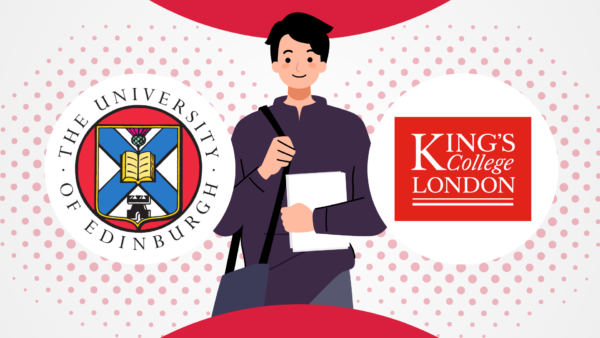
In the debate of the King’s College London vs the University of Edinburgh, academics alone cannot be the deciding factor. From their campus size to the culture, KCL and Edinburgh offer varied experiences to their students. Let us take a look at some of the other factors that can make a prospective student prefer Edinburgh to King’s or the other way around.
Location
As their names indicate, another important aspect that can alter your decision is choosing between London and Edinburgh. While they are both capital cities with their rich histories, vibrant cultures and flourishing economies, there is no doubt that London is a global hub for technology, commerce, business, and industry in general. It also means that London is noticeably more crowded, expensive and busy than Edinburgh.
Campus Life
King’s College London (KCL)
KCL has multiple campuses across central London, including the Strand, Guy’s, Waterloo, and St Thomas’ campuses. The architecture features a mix of historic and modern styles, with notable buildings such as the iconic King’s Building at the Strand and the state-of-the-art Guy’s Hospital, emphasising the university’s focus on health and life sciences. KCL boasts extensive facilities, including libraries, laboratories, study spaces, and sports centres, with the Maughan Library being particularly well-regarded for its ample study areas and resources. Being in the heart of London, students benefit from a vibrant city life that includes cultural events, dining, shopping, and entertainment options. The student body is diverse, representing many nationalities and cultures, which enriches the social environment. The university fosters community through various events, student organisations, and initiatives to involve students in city life.
University of Edinburgh
The University of Edinburgh is primarily located in the city’s historic Old Town and New Town areas, with its main campus around George Square. The university has 5 campuses spread throughout the city. The campus features a blend of historic buildings, such as the Old College and McEwan Hall, alongside modern facilities, creating a striking aesthetic. The university offers comprehensive facilities, including libraries, study spaces, laboratories, and art studios. The Main Library is a significant student resource, with extensive collections and study areas. Edinburgh’s campus is also dotted with green spaces, including the Meadows and Bristo Square, providing tranquil spots for students to relax or study outdoors.
Edinburgh is a UNESCO World Heritage site, rich in history and culture, with numerous festivals, galleries, and theatres that enhance the student experience. The city is also surrounded by stunning landscapes, including Arthur’s Seat, a dormant volcano that offers hiking opportunities and panoramic views of the city. Despite being a large university, Edinburgh fosters a strong community among students, supported by various social and academic initiatives. The city has good public transport options, including buses and trams, making it easy for students to travel and explore.
Student Activities and Organisations
King’s College London
King’s College London (KCL) is a vibrant multicultural environment that welcomes students from over 150 countries. Students who live in central London enjoy a vibrant urban lifestyle with easy access to cultural events, entertainment, dining, and historical landmarks. KCL has more than 300 student-run societies that cater to various interests and foster community. The King’s College London Students’ Union (KCLSU) helps these societies and organises events to improve student life. The university also provides sports teams and facilities, encouraging physical activity and fostering a strong sense of community.
University of Edinburgh
The University of Edinburgh has a rich cultural and historical British backdrop, including numerous festivals, art galleries, and theatres. The city offers many accommodations, and the university provides comprehensive support services. With over 300 student-led societies, students can pursue various activities and interests. The Edinburgh University Students’ Association (EUSA) supports these forums and organises events to improve student life. The university also has a vibrant sports culture and frequently hosts social events, cultural festivals, and academic workshops to foster community and engagement.
Housing and Accommodation
Out of the 45,000+ students (both undergraduate and postgraduate) students studying at King’s College, about 5,500 can be accommodated in King’s residences. The university has 14 halls/ apartments/ houses, easily accessible from the academic buildings, that are open to its students. A large majority of students choose to live in private housing facilities around their campus. As one of the founding universities of the University of London, King’s students can also apply to some of the intercollegiate halls.
The University of Edinburgh also owns over 60 apartments/ residence halls that provide single or twin sharing accommodation facilities to its students. The yearly cost of housing typically ranges from £3,000 to £7,000, depending on location, number of occupants, and catering facilities. Every student living outside the City of Edinburgh is guaranteed a place to live in University-managed accommodation as long as they apply by the Accommodation Guarantee deadline of 31 July.
University of Edinburgh vs King’s College London: Financial Aspects

Aside from academics and campus facilities, cost is essential when comparing Edinburgh University and King’s College London. Both are public universities, which are typically less expensive than private ones.
Another key distinction is that a typical bachelor’s degree at KCL can be completed in 3 years while it takes 4 years at the University of Edinburgh. While a 4-year degree has its advantages in the global education system, financially, it is additional costs of tuition and living that one has to bear.
| Annual Rates | Edinburgh University | King’s College London |
| Tuition Fees (Bachelors) | Scotland – £1,820 UK – £9,250 International – £28,000 – £38,000 |
UK students – £9,250 International – £35,800 |
| Tuition Fees (Master’s) | UK – £13,000 – £18,000 International: £30,000 – £50,000 |
UK: £12,500 – £40,000 International: £28,000 – £50,000 |
| MBA Tuition | £43,300 | £49,900 (EMBA) |
| Food | About £2,600 | About £2,700 |
| Off-Campus Housing | £6,000 – £8,000 | Around £12,000 |
| Housing (On-Campus) | £3,000 – £7,000 | £11,300 – £18,500 |
| Types of Financial Aid | 1. University Scholarships 2. Access Awards 3. Edinburgh Scholarships 4. Bursaries |
1. Loans and grants 2. Scholarships and Bursaries 3. Hardship funds |
| International Student Scholarships | Most bursaries are open only to home students. Overseas students can apply for various department specific scholarships that are awarded based on merit, or can also apply for external scholarships. | |
Here are a few important points to be kept in mind.
- The tuition rates are for an academic year composed of two semesters and the typical course load. Choosing extra courses/ summer programs will add to these amounts.
- The tuition fee varies, if you are doing a Placement Year or a Study Abroad year.
- The tuition fee amounts in the table are indicative of only the cost of attendance. It does not include books, club fees, and other expenses. International students can also avail the benefits of the NHS by paying a surcharge of £470 per year.
- As mentioned earlier, it is important to research into scholarships made available for specific programs/ colleges. Both these UK universities offer financial aid based both on academic merit and performance in sports. The need-based financial aid is called a bursary and is open to both home and overseas students.
- Besides the university funded scholarships, international students can look into the British Council Scholarships, GREAT scholarships, Chevening, the Charles Wallace Trust, and the Commonwealth Scholarship options.
University of Edinburgh vs King’s College London: Career Prospects and Alumni Network
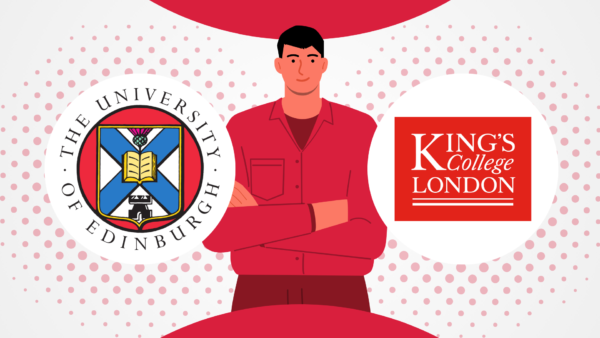
The career support provided by universities can significantly influence post-graduation success. Both universities enjoy high graduate employability rates, with many students securing jobs within six months of graduation. The Guardian League Table scores Edinburgh with 86 and King’s College with 89 on a scale of 100 when it comes to a career after 15 months of graduation. According to the Complete University Guide, the graduate prospect outcome of being successful is 83% for Edinburgh graduates and 87% for King’s College graduates.
Notable Alumni
Both institutions boast a roster of distinguished alums, including Nobel laureates and influential figures in various fields, which enhances their global reputations.
Notable Alums from King’s College London include
- Thomas Hardy, Novelist and poet
- Sarojini Naidu, Indian Freedom fighter, political activist, and poet
- Arthur C Clarke, Science fiction writer
- Virginia Woolf, Writer
- Desmond Tutu, Anti-Apartheid human rights activist
- Peter Higgs, Theoretical Physicist
- Florence Nightingale, Founder of modern nursing
Notable alumni from the University of Edinburgh include
- Charles Darwin, Naturalist
- Sir Walter Scott, Novelist and poet
- David Hume, Philosopher, Scottish Enlightenment
- James Clerk Maxwell, Physicist
- Alexander Graham Bell, Inventor and scientist
Career Services
Both universities offer comprehensive career services, with Edinburgh focusing on skills development and local industry connections, while KCL leverages its London location for extensive networking and placement opportunities.
University of Edinburgh:
- The University of Edinburgh Careers Service provides career advice, CV and interview workshops, and job application guidance.
- Internship and Placement Programmes: Offers internships, placements, and part-time jobs through collaborations with businesses and organisations.
- Career Fairs and Employer Events: This organisation arranges career fairs, networking events, and employer presentations to connect students with potential employers.
- Edinburgh Award: A personal development programme recognising skills acquired through work experience, volunteering, or extracurricular activities.
- Online Career Resources: This section contains job listings, industry insights, and virtual career guidance.
King’s College London (KCL):
- King’s Careers & Employability: Provides career coaching, CV and interview preparation, and career planning workshops for students.
- Work-Based Learning: Arranges internships, placements, and work-based projects with top companies in London’s finance, healthcare, and technology sectors.
- Career Fairs and Networking: Arrange large career fairs, industry-specific events, and networking opportunities with top employers.
- The King’s Leadership & Professional Skills Award recognises and develops leadership and employability skills through extracurricular involvement.
- Online Tools & Job Portals: This site offers students access to job postings, career guides, and digital resources for career development.
University of Edinburgh vs King’s College London: Conclusion
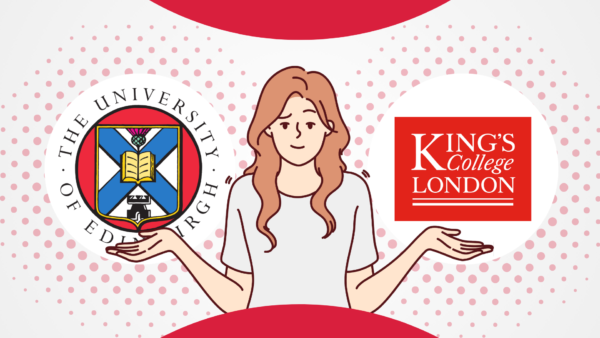
Choosing between two top universities, the University of Edinburgh vs King’s College London, ultimately depends on individual priorities and academic goals. While both institutions are renowned for their quality of education and research opportunities, they offer unique experiences that cater to different needs. Here is a quick summary of how these two world class institutions stand apart.
- The University of Edinburgh is ranked marginally higher than KCL overall, according to most metrics.
- However, both universities have their niche areas where they specialise and shine, compared to the other. Edinburgh has a better reputation for humanities, medicine and veterinary sciences, computer and AI, and some of its engineering programs while King’s London is known for its business, law, social sciences, nursing and politics, among others.
- The University of Edinburgh has a longer history and legacy than King’s College.
- One of the key differences is that an undergraduate degree at KCL typically takes 3 years but takes 4 years to complete in Scotland.
- This also has an impact on the financial aspects of getting the degree. As an international student, Edinburgh works out to be more expensive for the overall duration of the study when compared to KCL. However, there are significant advantages for a Scottish National studying at the University of Edinburgh. UK students also get subsidised rates in both universities.
- Both universities offer various options for scholarships and accommodation for both home and international students.
- London is a better city for networking, socialising, and future career prospects, but it is more expensive than living in Edinburgh. It can also feel large and alienating, compared to the more college-town vibe, especially in the Old Town part of Edinburgh.
Amid all the differences, it is important not to be swayed purely by rankings or their legacy. Considering their reputation, the ultimate call rests on whether the course curriculum and the learning outcomes meet your career plans. The most significant part of your research is to compare courses, syllabi, electives, faculty and research facilities of your preferred degree program, speak to current students, and then decide on which school better suits your needs.
We understand that becoming an international student can be very thrilling, but the prep and paperwork of it all can get overwhelming. The easiest way to reduce your stress is to sign up with TC Global.
We simplify international education, learning, and mobility through connecting students, universities, and a global community on a single platform where there are over 1000+ education providers and over 80,000+ courses.
Our platform enables students to study anywhere in the world in just a few steps. From search and discovery and finding the right course fit for you, to applications, visas and departure – we see you through it all.
To move forward with us, download our app or visit tcglobal.com and sign in to create an account on our student platform and onboard with us in quick, easy steps.! 🚀
Then simply set up a visit Calendly.com/tcglobal to pick a Relationships Team closest to you and choose a slot to meet with a Relationship Member. Be it University of Edinburgh vs King’s College or any such debates, our experts will be with you every step of the way to help you decide.
Let’s shape your future together.
FAQs
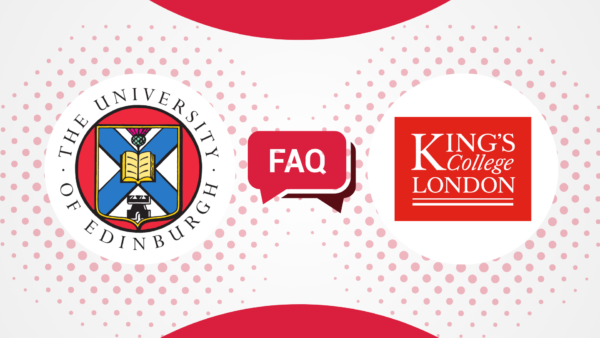
Which university is better for international students?
Both universities have substantial international student populations and support services, but specific program strengths may vary. Edinburgh University is compared to the likes of the University of Oxford, while King’s is compared to the likes of LSE and Cambridge.
What are the living costs in Edinburgh and London?
London is generally more expensive than Edinburgh, particularly concerning housing.
Student Accommodation:
London: £800 to £1,500+ per month
Edinburgh: £400 to £900 per month
Transportation:
London: ~£100 per month (Zones 1-2 with student discount)
Edinburgh: ~£45-50 per month (student bus pass)
Groceries:
London: £30 to £50 per week
Edinburgh: £25 to £40 per week
Utilities:
London: £50 to £150 per month
Edinburgh: £40 to £120 per month
In conclusion, Edinburgh is cheaper than London, making it a more budget-friendly option for students regarding accommodation and living expenses.
Can I apply to multiple universities?
Students can apply to multiple universities in the UK, such as the University of Glasgow, UCL and Imperial College London, in one go, but they should be mindful of application deadlines. For undergraduate students, UCAS allows them to apply to five universities with one application.
Are there scholarships available for international students?
Both universities offer various scholarships. Students can check the university websites for more details about tuition fees, scholarship amounts, deadlines, prerequisites, etc.
What are the significant differences in student life?
Edinburgh offers a more traditional university experience with historical elements, while King’s provides a bustling urban environment.
This comprehensive comparison aims to assist prospective students in making informed choices about their academic futures at the University of Edinburgh or King’s College London.
Is UCL better than King’s College London?
By almost all ranking sources, University College London is ranked ahead of KCL, overall. However, there are some subjects like nursing, dentistry and law where King’s surpasses UCL.
Can King’s College be compared to the Ivy League?
While there is no direct equivalent of the Ivy League in the UK, the reputation of both Edinburgh and KCL make it comparable to the Ivies. Moreover, KCL is also included in an unofficial group of best universities called the Golden Triangle that also includes Oxbridge, UCL, and the London School of Economics and Political Science (LSE).
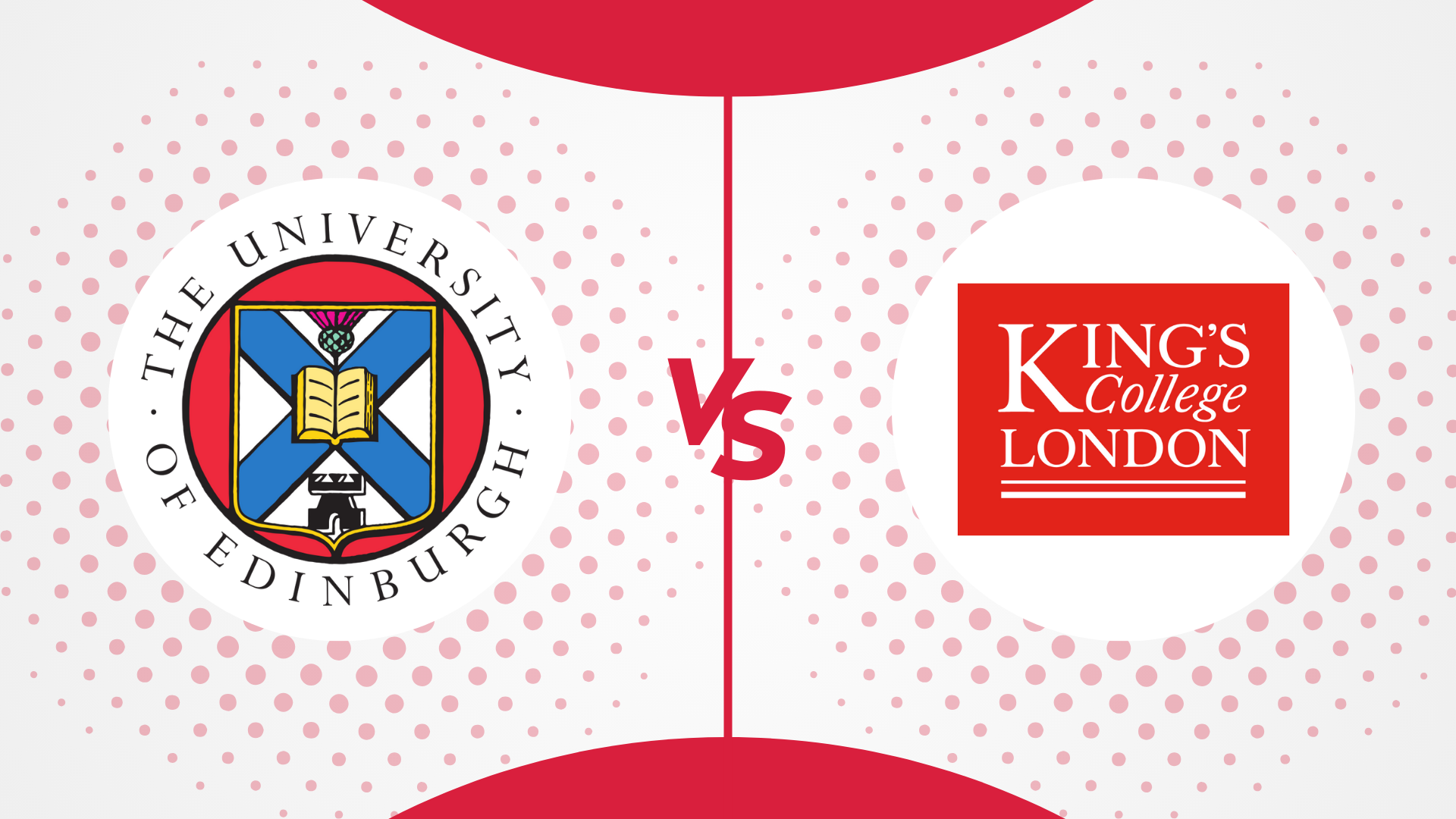
Compare more universities in UK
-
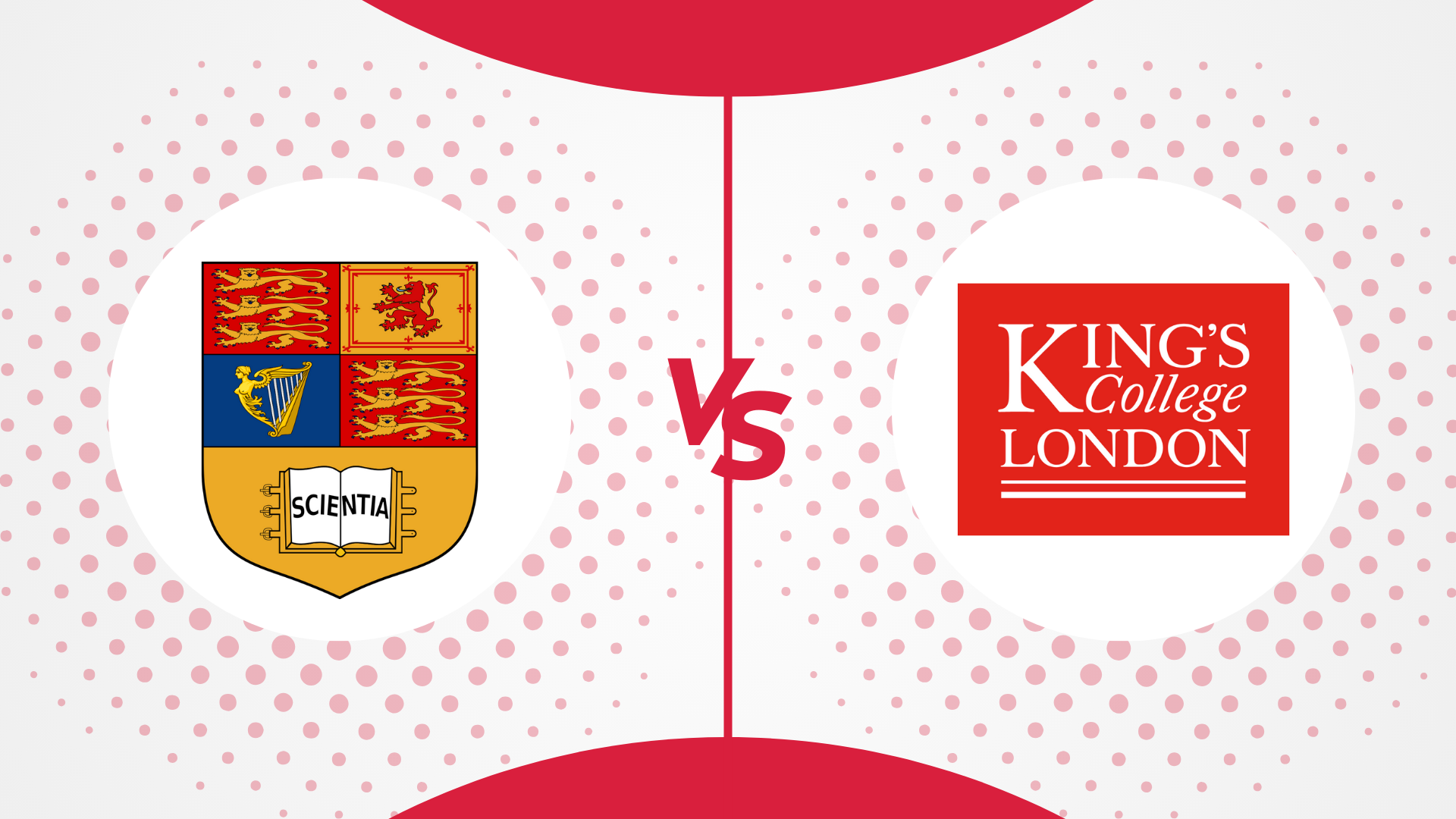
King’s College London vs Imperial College London: How do they Compare [2025]
July 31, 2025 -

London School of Economics vs King’s College: How Do They Compare? [2025]
July 25, 2025 -
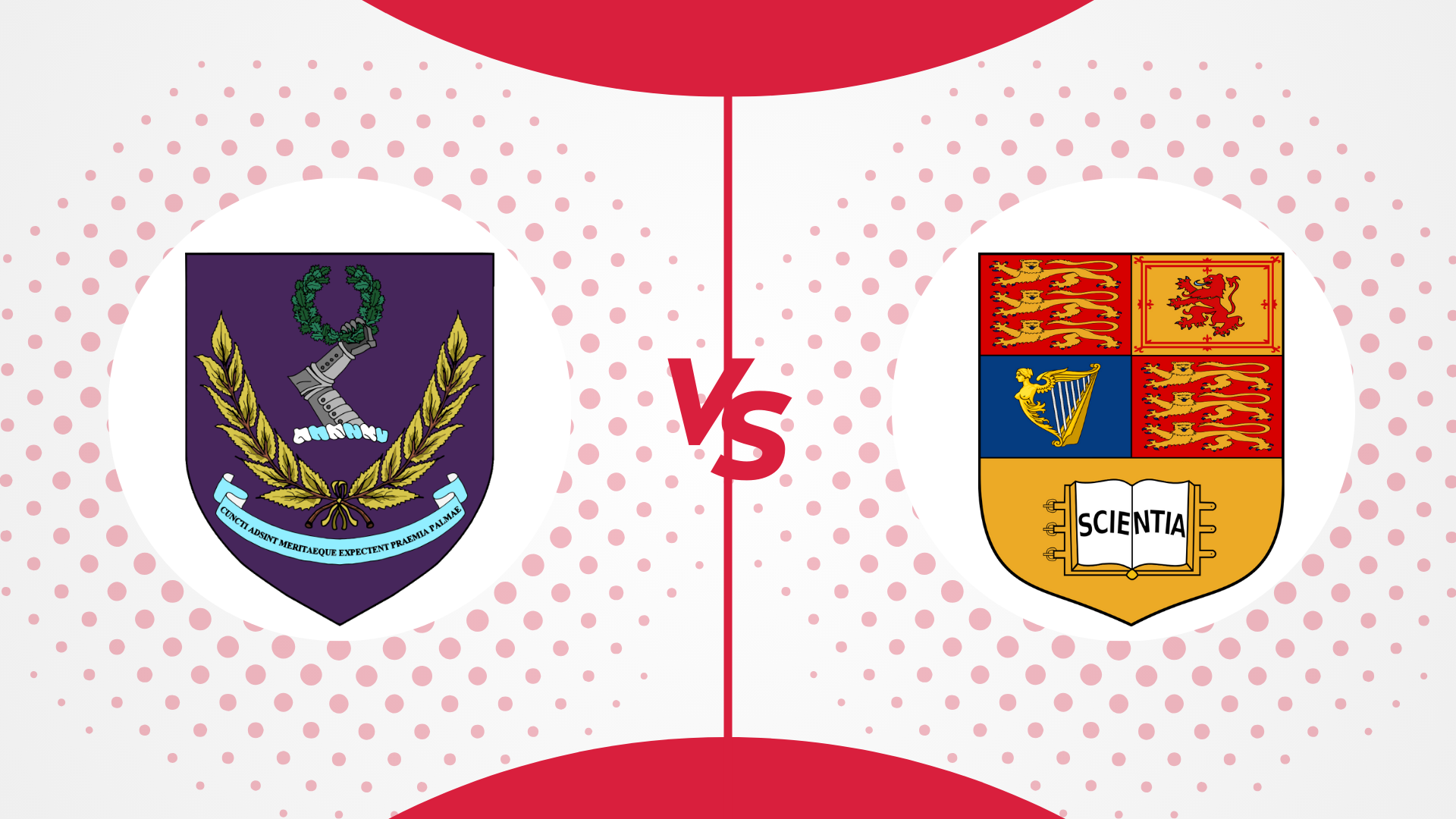
UCL vs Imperial: How Do They Compare? [2025]
July 23, 2025 -

UCL vs LSE: How Do They Compare in 2025?
November 19, 2024 -

Nottingham University vs Nottingham Trent: How Do They Compare? [2025]
November 19, 2024 -
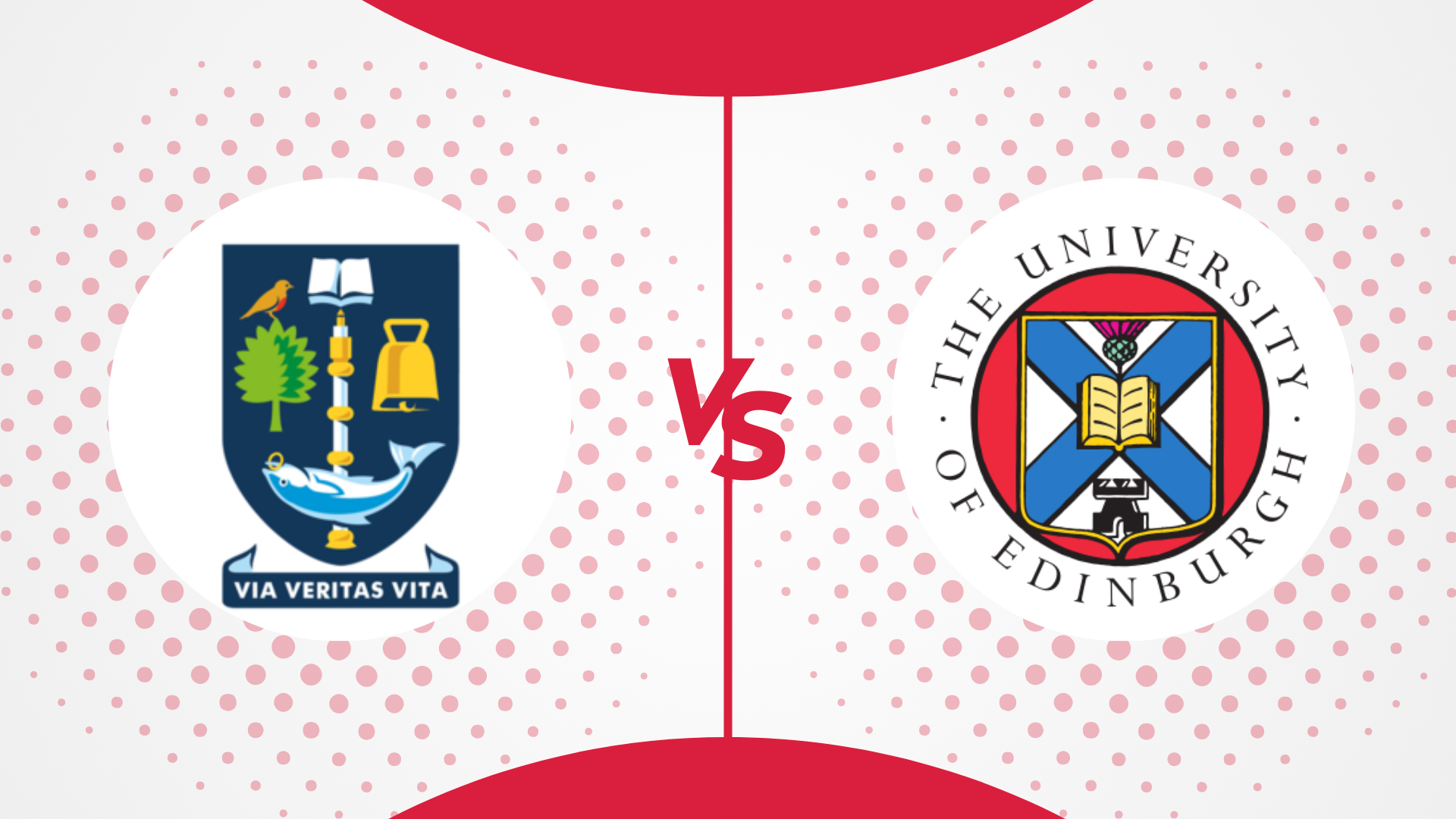
Glasgow University vs University of Edinburgh: How Do They Compare? [2025]
November 19, 2024 -

Durham University vs Glasgow University: How Do They Compare? [2025]
November 6, 2024 -

London School of Economics Vs London Business School: How Do They Compare? [2024]
October 26, 2024 -

LSE vs Oxford: How Do They Compare? [2024]
October 8, 2024 -

Durham vs Warwick: How Do They Compare? [2025]
September 27, 2024


















